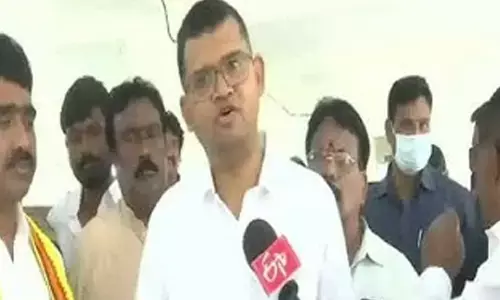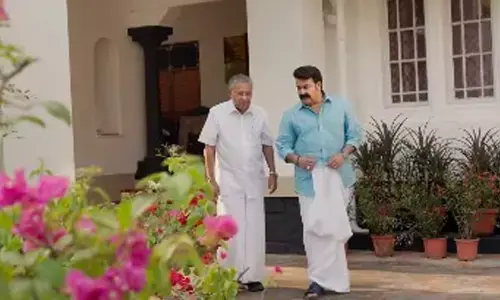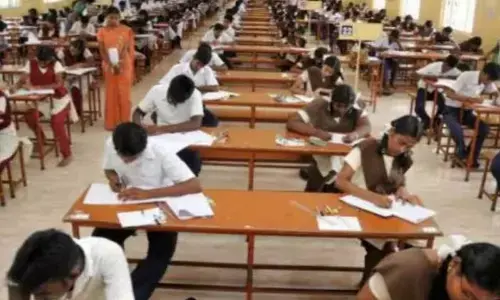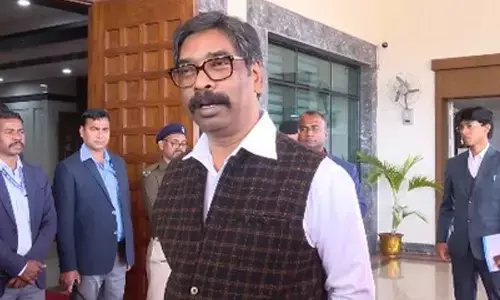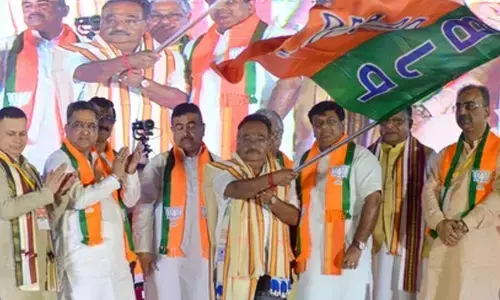Squatting in the polling booth: Is Mamata above the law?
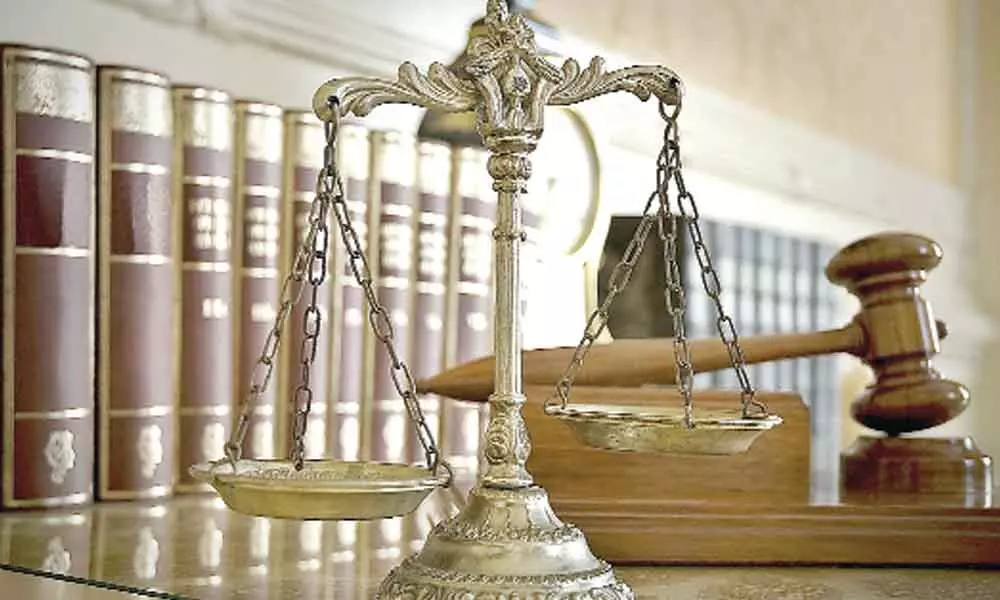
‘Draconian’ laws must to deal with draconian elements!
Mamata Banerjee, the Chief Minister of West Bengal since a decade, is undoubtedly a mass-leader. In the ongoing elections for the State Assembly, she has been facing many odds, including the big challenge from the Bharatiya Janata Party.
Mamata Banerjee, the Chief Minister of West Bengal since a decade, is undoubtedly a mass-leader. In the ongoing elections for the State Assembly, she has been facing many odds, including the big challenge from the Bharatiya Janata Party. We have nothing to say about the poll prospects of either Trinamool Congress represented by Mamata or the BJP or for that reason any other contestants. But, we are certainly concerned with her bizarre act of 'camping' in a polling booth during voting hours and interfering with the election process.
What is still worse is the way polling authorities in and out of the said booth meekly succumbing to the hegemony of the sitting Chief Minister, who herself is a contesting candidate. The Election Commission, which is vested with the constitutional powers of superintendence, direction and control of the elections under Article 324, too, has so far maintained the stoic silence.
The Representation of the People Act and Rules made there under details the documents governing every aspect of the elections right from the registration and recognition of political parties, qualifications and disqualifications of candidates, proclamation for the conduct of elections, corrupt practices, appeals etc; to all minute details like do's and don'ts during the elections.
Section 123 (B) (2) of the Representation of the People Act specifically deals with the 'corrupt practices'. The expression corrupt practice, inter alia, says : " … any direct or indirect interference or attempt to interfere on the part of the candidate or his agent, or of any other person (with the consent of the candidate or his election agent) with the free exercise of any electoral right." Mamata Banerjee's act of squatting in a polling booth for well over two hours during the voting timings certainly attracts this provision. Her mere presence and threatening gestures to the opposition parties are just enough to interfere with the 'free' exercise of voting rights of the people.
One fails to understand that as per election laws, when the people performing electoral duties including those manning, managing and protecting the polling booth are deemed to be on deputation with the Election Commission, why did they allow the contesting Chief Minister to occupy the polling booth in the first place. Added to this, she was also allowed to use her mobile phone thereby interfering with the electoral process.
Further, for whatever reasons calling the highest dignitary of the State, the Governor and complaining about the law and order situation like a novice in politics, does not go well for a constitutional dignitary like the sitting Chief Minister whose primary duty is to govern the State. It is, indeed, unthinkable that she is ignorant of the election laws which postulate that the Governor or even the courts have very limited powers in the matters of conducting polls.
Then, why this Tamasha? The law does not take into consideration the status of a person, but it only takes into account the offence. Mamata Banerjee had deliberately interfered in the process of free elections. Therefore, she deserves to be booked for the corrupt electoral practices as mentioned above. Let the law take its own course.
Orissa HC on false promise to marry
There is a need to clarify the offence of sexual intercourse with a woman by a person who gives her the false promise of marriage, observed the High Court of Orissa on March 31.
Justice SK Panigrahi, in his Judgment in Rinku Pradhan vs State of Odisha & Anr, said that Section 90 of the Indian Penal Code lacks clarity on this matter. While disagreeing with the apex court's conclusion that giving the false promise of marriage and on that basis obtaining the victim's consent for sex amounts to rape, Justice Panigrahi felt that the ground of false promise should be specifically added to other six grounds in the offence of rape.
While remanding the case back to the trial court for a fair and impartial trial, the High Court dismissed the bail petition of the accused.
Gujarat amends law to include love jihad
The Gujarat Assembly on April 1 passed the Freedom of Religion (Amendment) Bill, 2021 amending the Freedom of Religion Act, 2003. The Amendment, inter alia, makes forcible and/or fraudulent conversions and marriages (love-jihad) punishable offences by providing deterrent punishments ranging from three years to 10 years and fine. By passing the Amendment Bill, Gujarat has joined the ranks of Madhya Pradesh and Uttar Pradesh.
TS High Court to conduct interviews for Senior Advocate posts from April 6
In all, 67 advocates of Telangana High Court, who have applied for designation as Senior Advocate, have been informed by a notification dated March 31 to attend the interview before the Members of the Permanent Committee constituted for the said purpose. The interviews would be held from April 6 to April 9 from 2.30 pm onwards through virtual mode from video conferencing room in the main building at the High Court. In case of any difficulty, they may attend the interview virtually from their home/office for which they should intimate to the Registrar General at least one day in advance.
SC slaps Rs 20k fine on Bihar govt
The Supreme Court dismissed an appeal of the Bihar government and imposed a fine of Rs 20,000 on the State for "utter wastage" of judicial time in a matter which was earlier disposed of by the Patna High Court after the parties had jointly agreed for it.
When the Special Leave Petition (SLP) filed by the Bihar government against the September 2020, order of a division bench of the High Court which had disposed of its plea on 'agreed terms' came up for hearing on March 22, a bench of Justice SK Kaul and RS Reddy came down heavily on the State, terming the said SLP as a complete abuse of process of law and utter wastage of judicial time. The court granted liberty to the State to recover the amount of cost imposed from the concerned officers who had indulged in the 'misadventure'.
Indeed, this is a welcome move by the Apex court. It would have salutary impact on the States and other autonomous bodies who mechanically file appeals to the higher courts irrespective of the legal point or cost of litigation or financial advantage to the exchequer.


